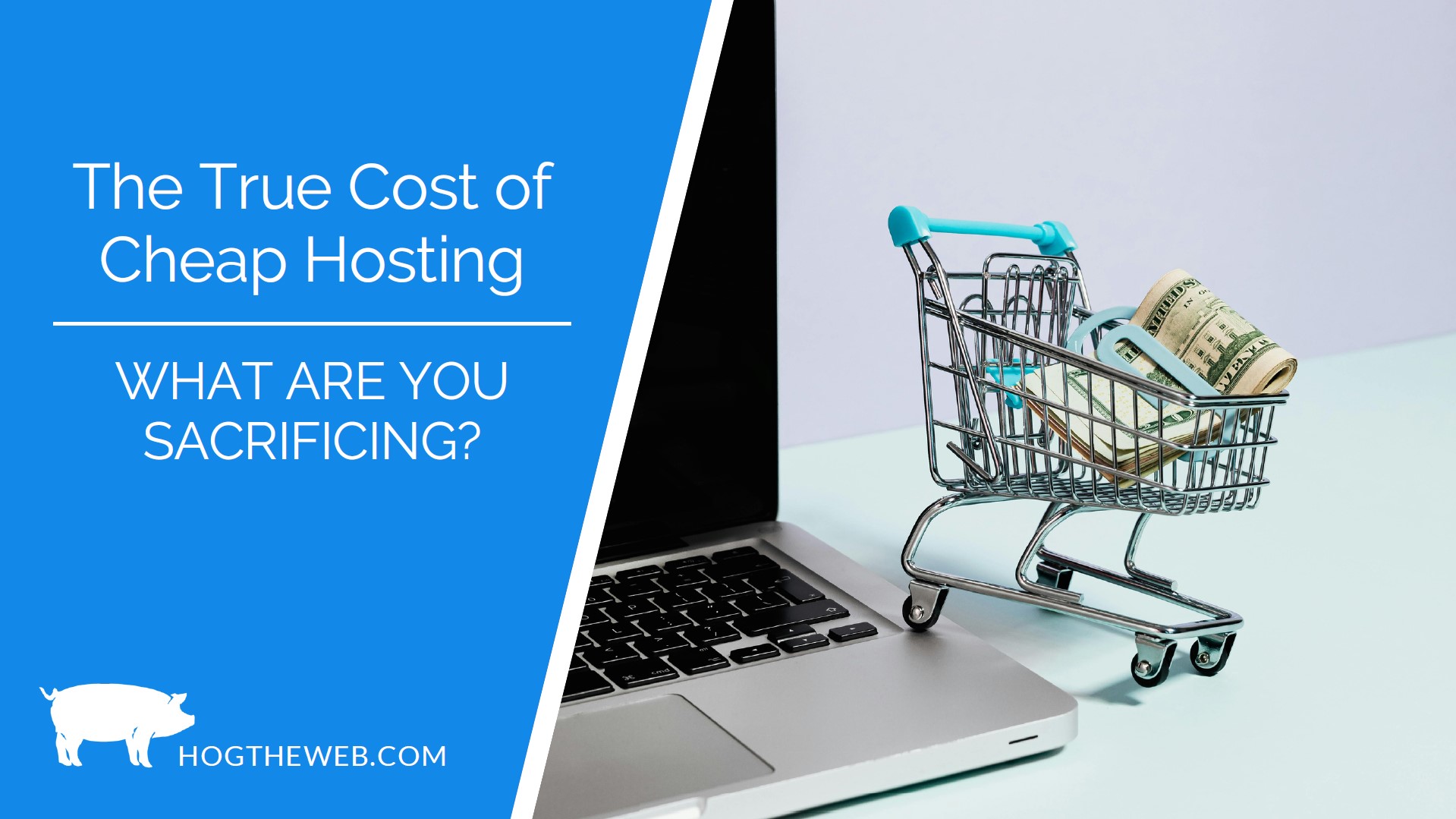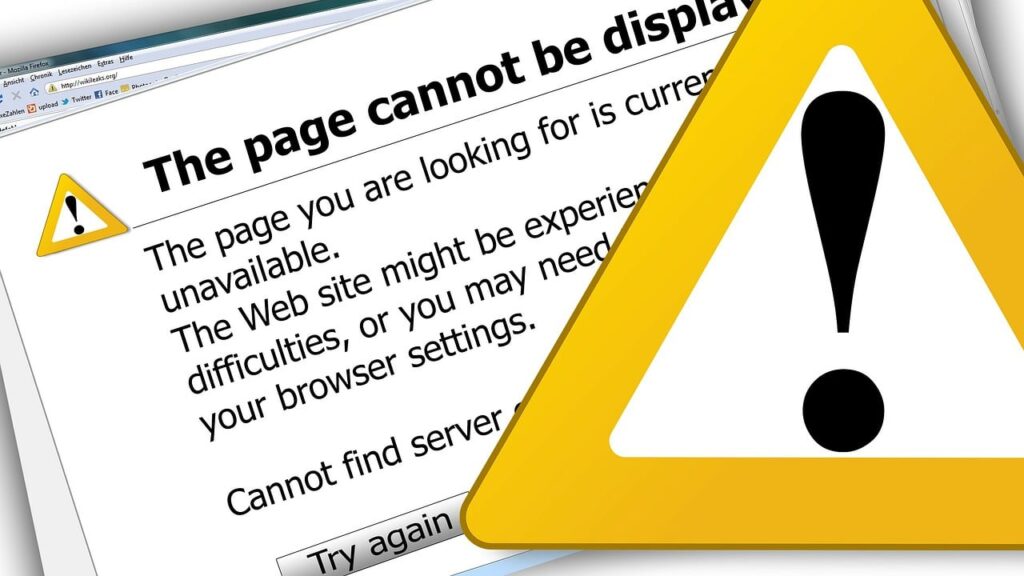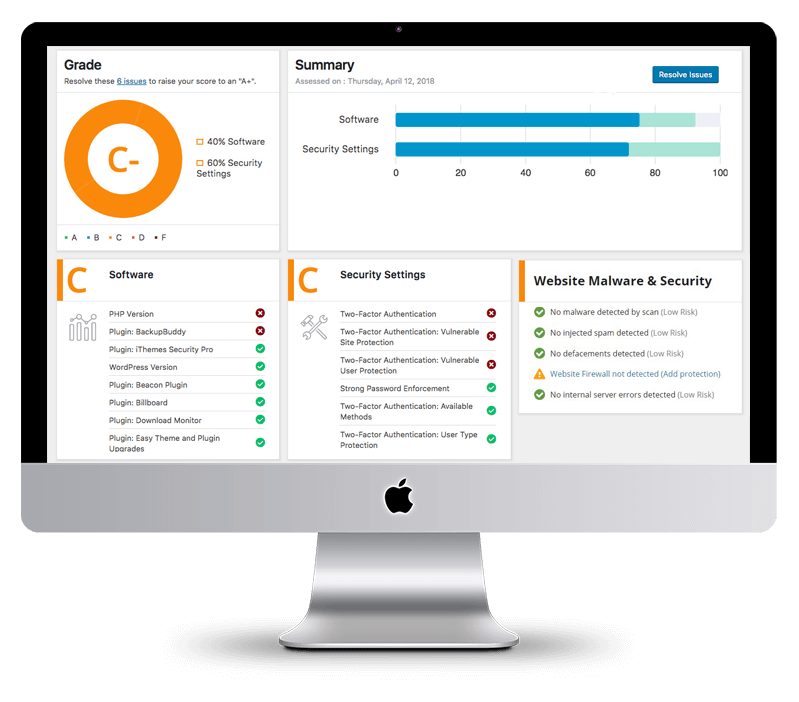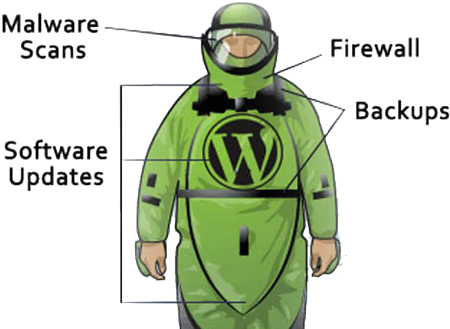Did you know that 60% to 80% of small businesses choose affordable hosting solutions to keep their overheads low? You could be one of them… We know it’s hard to keep everything within your budget, and web hosting is often considered to be a “bottom of the pile” kind of thing.
Your website’s performance, security, and overall success hang in the balance. Keep reading to learn the true cost of cheap hosting and why spending more money on this WILL help you in the long run!
What is “Cheap Hosting”?
Cheap hosting refers to well-priced web hosting services designed for startups, small businesses, and quick website launching without high upfront costs.
Most of the time, these cheap services use shared servers, meaning multiple websites share the same resources, which helps keep prices low. But this setup does come with limitations like restricted bandwidth, limited storage, fewer security features, and minimal customer support.

Many providers also use promotional pricing, where the initial low cost increases a LOT upon renewal. While cheap hosting can be a great way to get started online, it’s important to weigh up these potential drawbacks to make sure it meets your long-term needs.
Hidden Costs of Cheap Hosting
Cheap hosting might seem attractive upfront. But here’s what you’ll be dealing with… And how it can quickly become a bigger problem.
1. Limited Access to Resources
Cheap hosting plans often come with strict (and low) limits on bandwidth and storage, which can restrict your website’s ability to grow. As your site attracts more visitors or builds up a library of media content, you can quickly hit these caps, leading to one of three things you really didn’t want from the start: website problems/crashes, extra costs, or the need to upgrade to a more expensive plan.
For example, some shared web hosts (we won’t mention names) limit each user to around 5% of the system’s resources! The moment you stray over that, your site suffers—slow loading, downtime, and unhappy customers trying to access your site. You’re forced to either find a new host offering more resources, or upgrade to a higher plan with your current host.
2. Revenue-Affecting Performance Issues
Websites hosted on cheap servers usually load quite a bit slower, because of shared resources and limited optimization. This can really frustrate users, which makes your bounce rates go up. More people visiting but less people sticking around indicates to Google that nobody likes being on your site, which means Google knocks you down the rankings.
Inexpensive hosting providers might also not guarantee high uptime, leading to more frequent website outages. Downtime not only affects user experience but can also result in lost revenue, especially if you’re an e-commerce site or business that relies on your website for sales and customer engagement.
As an example, a study of over 200 businesses proved that poor performance (often as a result of bad web hosting) can cost companies up to 15% of their revenue! Plus, 41% of the businesses in the study reported a drop in their brand’s reputation, which can lead to more revenue drops further down the line.
3. Disappointing Customer Support
Cheap hosting services often provide minimal (if any) customer support, which means it can be hard to get help if you run into problems. This can lead to longer website downtime and increase your frustration, especially if you don’t have the technical expertise to resolve problems on your own.
When they do offer support, it’s often less knowledgeable and less effective. Without access to expert help, you may struggle to troubleshoot complex issues, leaving your website vulnerable to security threats and performance problems that could have been easily resolved with better support.
4. Dangerous Security Risks
When multiple websites share the same server, weak spots on one site can compromise others, increasing the risk of cross-site security breaches. Cheap hosting often skips security measures like SSL certificates and tough firewalls, leaving your site more exposed to cyber threats and data leaks.
Inexpensive hosts may also back stuff up less often than they should, putting your website’s data at risk of being lost and unable to be recovered. Plus, they may not comply with important data protection regulations, which can cause legal issues for you and your business.
According to research, over 300,000 websites get hacked on a daily basis, with 96% of those being WordPress sites. While weak passwords are the main reason, imagine how much easier it is for a hacker to gain access to your site when your web host isn’t protecting you adequately. Only 14% of businesses are ready to defend againt cyberattacks… And if you’re using cheap hosting, you’re probably not in that 14%.
5. Scalability and Flexibility Constraints
As your website grows, cheap hosting plans may not give you the resources or features you need, making it difficult to scale and start earning more. And this brings up another potential issue—moving your website to a better, more reliable web host later can be complicated, expensive, and your site may be down for longer than usual.
If you’re changing web hosts, your site might be down for 24 to 48 hours as DNS records update to point to your new site. This downtime is something you can avoid by choosing a reputable, reliable web host from the beginning.
6. Impact on SEO and User Experience
Slow loading times caused by cheap hosting can negatively affect your SEO rankings, making it harder for potential visitors to find your site through search engines. Plus, using a cheap web host can cause Google and other search engines to bump your site down the rankings because it comes across as unreliable.
And to come full circle, poor rankings, slow loading, and being offline can ruin any trust you’ve built with users, which in turn can lead to your brand being negatively perceived. Once you’re seen as unreliable and users boycott you and your products, it’s infinitely more difficult to come back and be successful.
When it comes to customer experience, if you want to really understand how customers feel about slow-loading sites, Yottaa’s research is quite telling. If your site takes longer than 3 seconds to load (yes, 3 seconds!) around 40% of users will leave and look somewhere else. 80% of them won’t come back and give you a second chance.
7. Long-Term Financial Implications
Downtime and poor website performance can result in lost sales and revenue, especially if you’re an e-commerce business relying on your online presence to be successful. This can put a huge damper on your momentum, and to make it harder, might require quite a bit of capital to bounce back from.
When you’re losing 15% of your monthly revenue due to bad hosting (see point #1), you’re basically losing out on 2 extra month’s worth of revenue each year. Continue with the same cheap web host for a few years, and it all adds up to a huge chunk of revenue lost.
Plus, over time, as your business grows, you’ll also need to upgrade to plans that better suit your needs. When you’re used to paying just a small fee for hosting, this can take a big chunk out of your budget.
Conclusion
In the end, choosing cheap hosting might save money upfront, but the hidden costs aren’t worth it. And there WILL be extra costs—as long as you’re planning on growing your business (and who isn’t?), you’ll reach a point where cheap hosting isn’t good enough. It’s not a question of if, it’s a question of when.
It makes much more sense to start with a slightly higher-cost but much more reliable web host. You might not see the value in a dedicated server, or extra resources upfront, but trust me—when your business starts thriving, you’ll be glad you have a reliable, scalable web host on your side. It’s one less thing to worry about on your way to success.
About the Author


Levi is the Founder & CEO of Hog The Web, a web design and WordPress services company delivering high-performance websites since 2015. With over a decade of hands-on experience in building, maintaining, and securing websites, Levi leads his team with a focus on craftsmanship, reliability, and long-term client partnerships. Outside the web world, he’s passionate about nature, sustainable living, and giving back through local non-profits and youth education.











